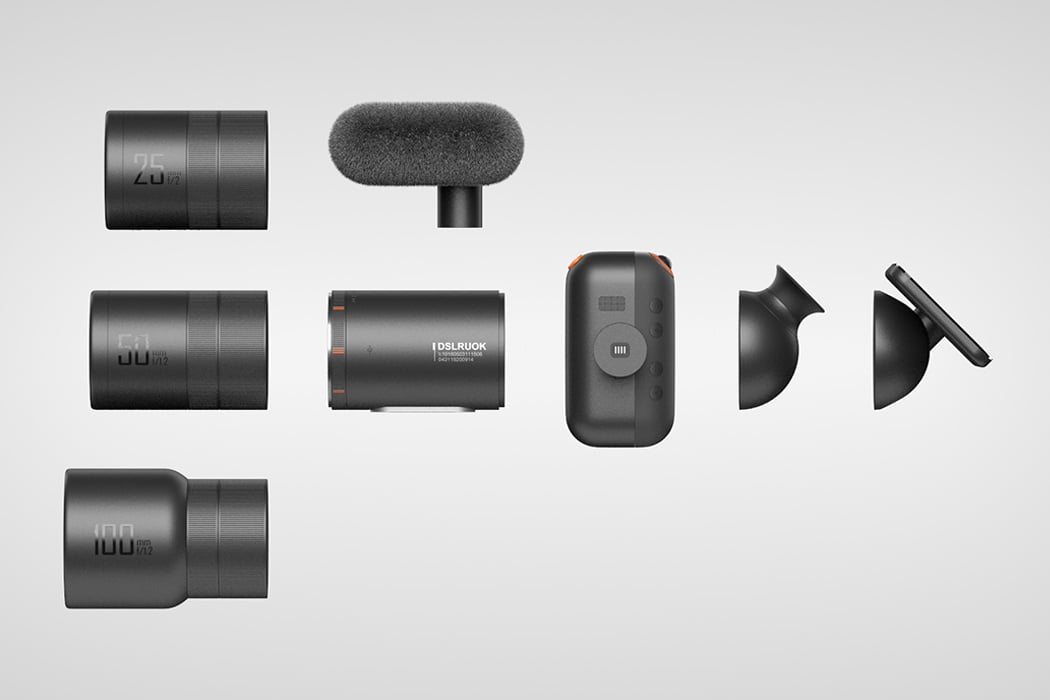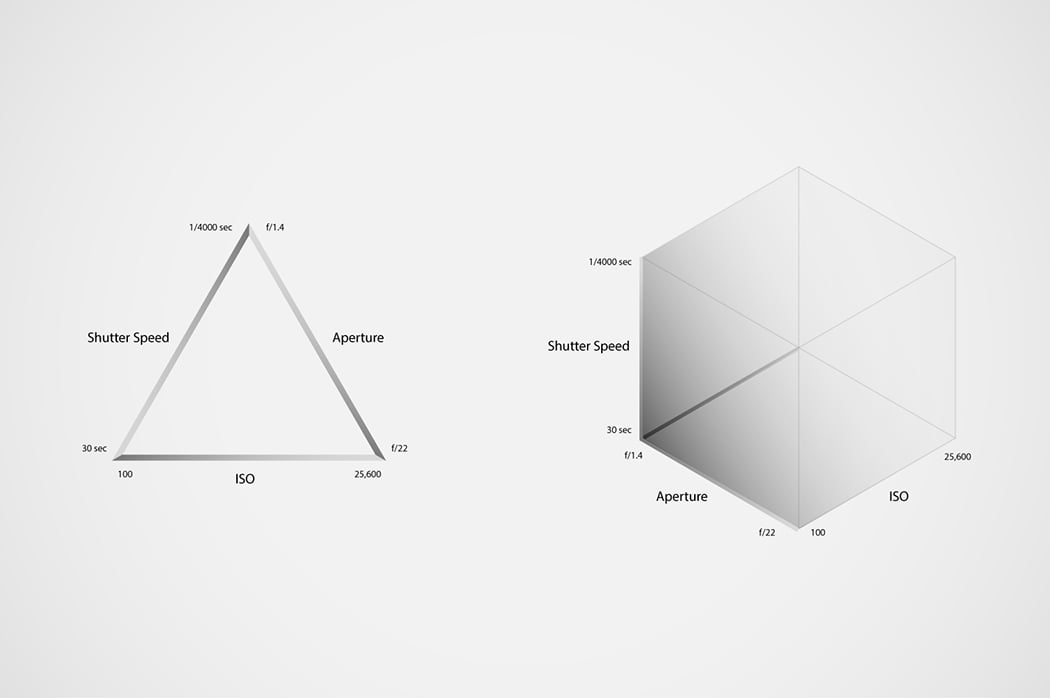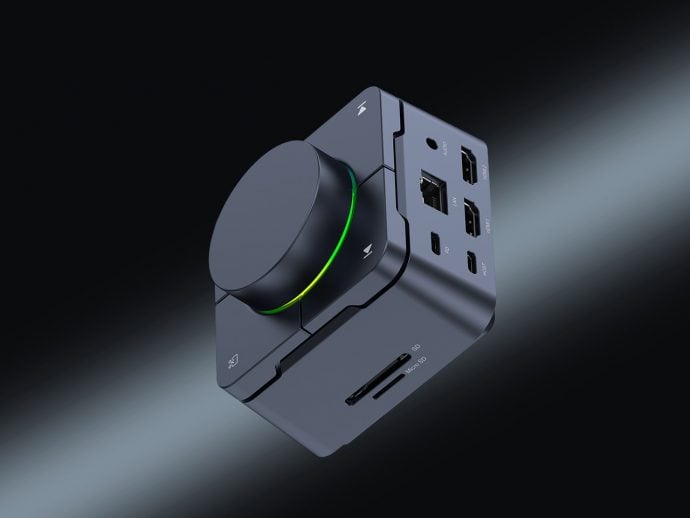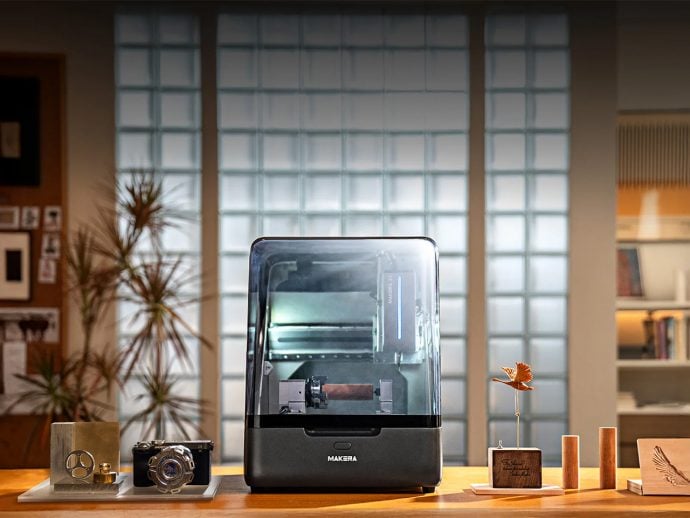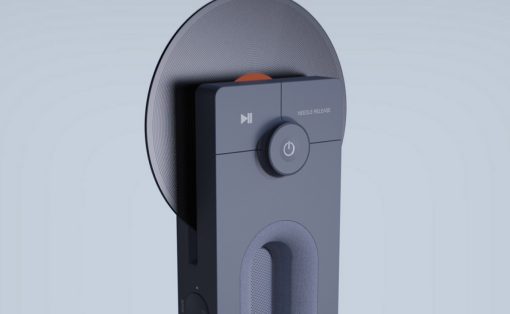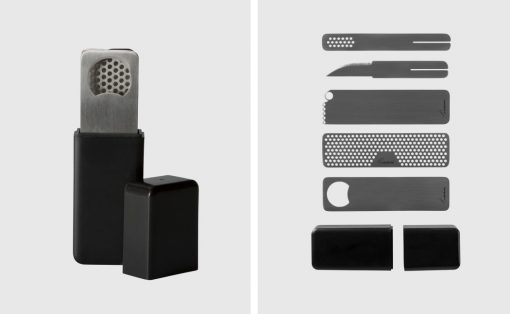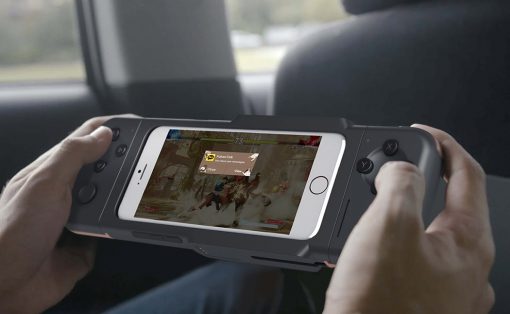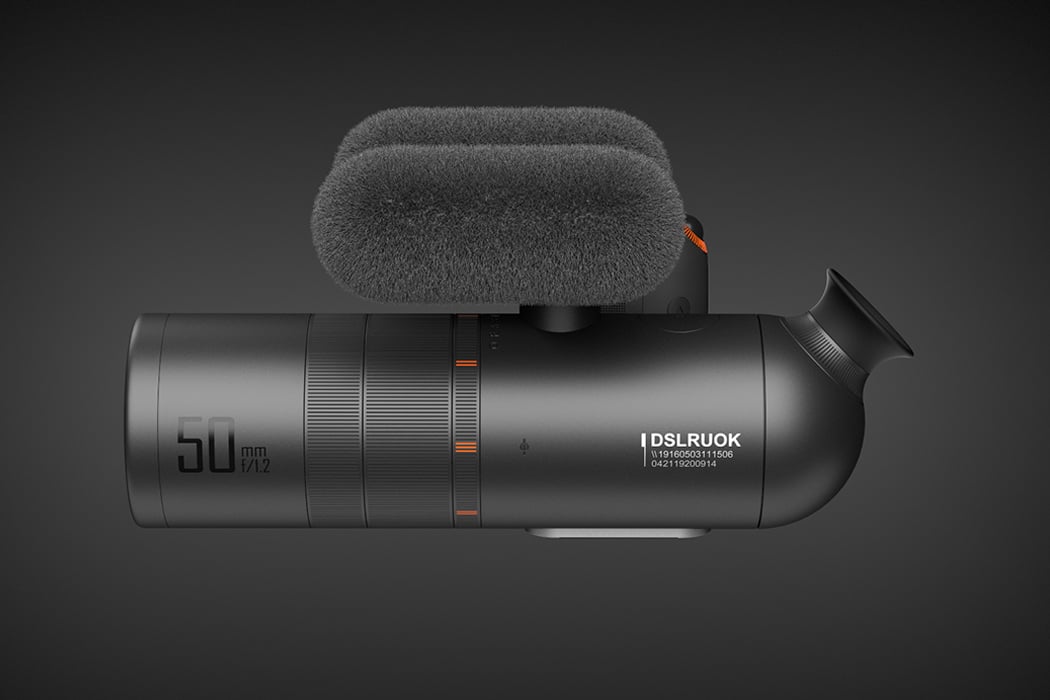
DSLRs are the “high end” tools of amateur and professional photographers. While many believe their form factor is the perfect product of decades of refinement in ergonomics and function, it also means it might be stuck in the past. The DSLRUOK explores an impressive array of form and function updates that the market has been resistant to for some time.
Designer: Dustin Brown
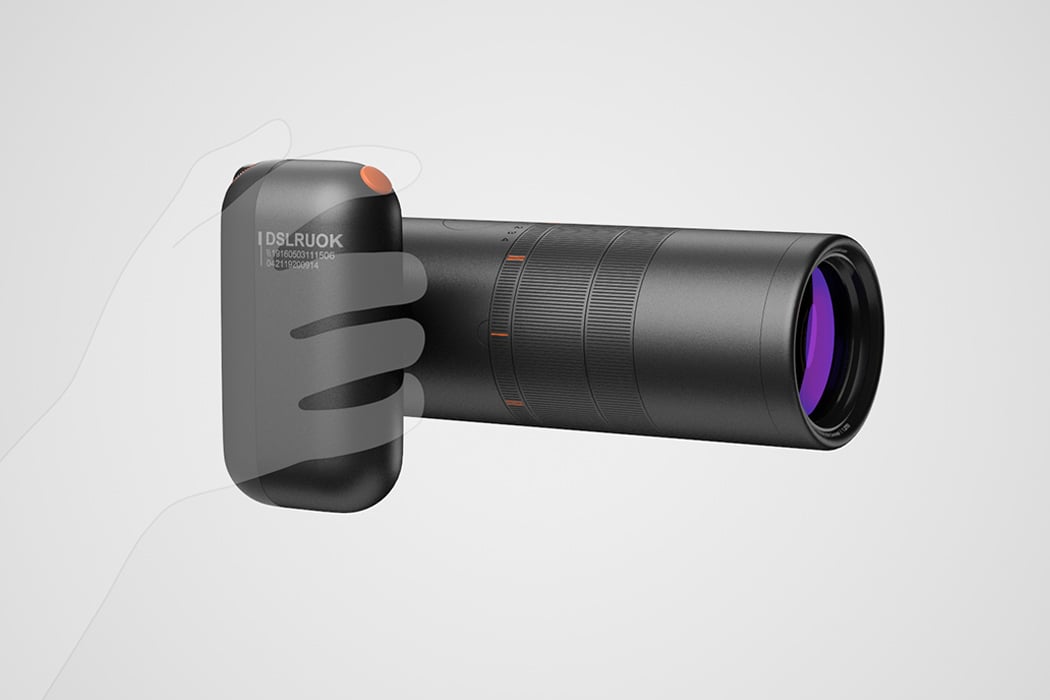
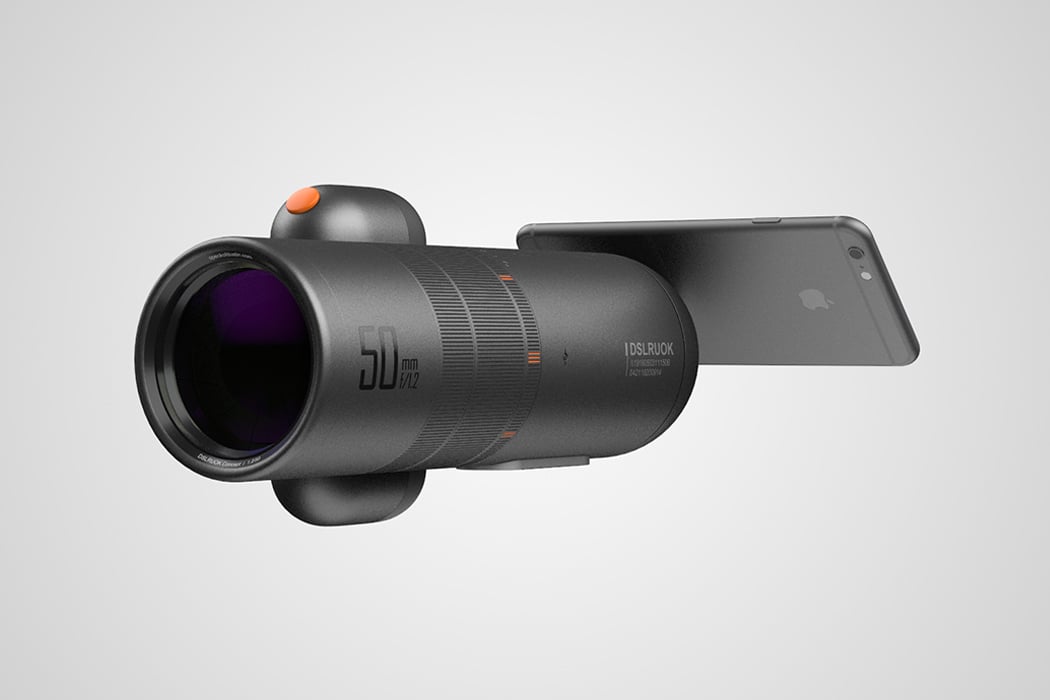
Most of us already carry a high quality screen in our pockets if we have a smartphone. The design drops the on-body screen to reduce size and power requirements. Dock with a phone that users likely already upgrade every year. Better yet, it can connect to an iPad. A tablet screen could also give users enough real estate for camera controls. It can use the other device’s internet connection to post high quality images and video to Instagram, Snapchat, and Facebook, or continuously archive RAW files to the cloud.
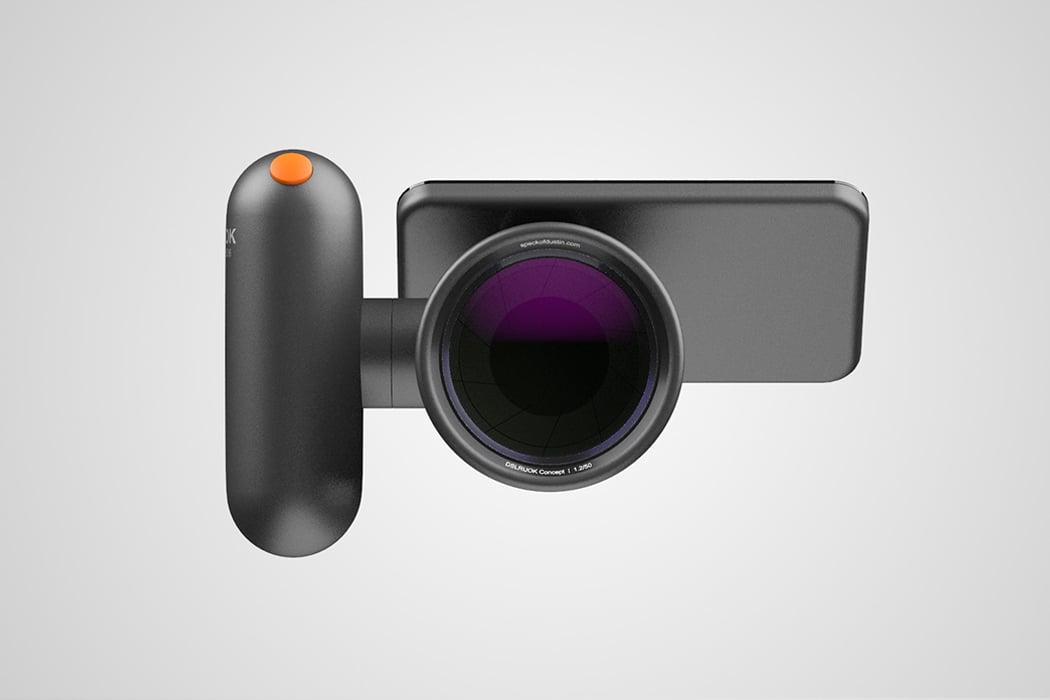
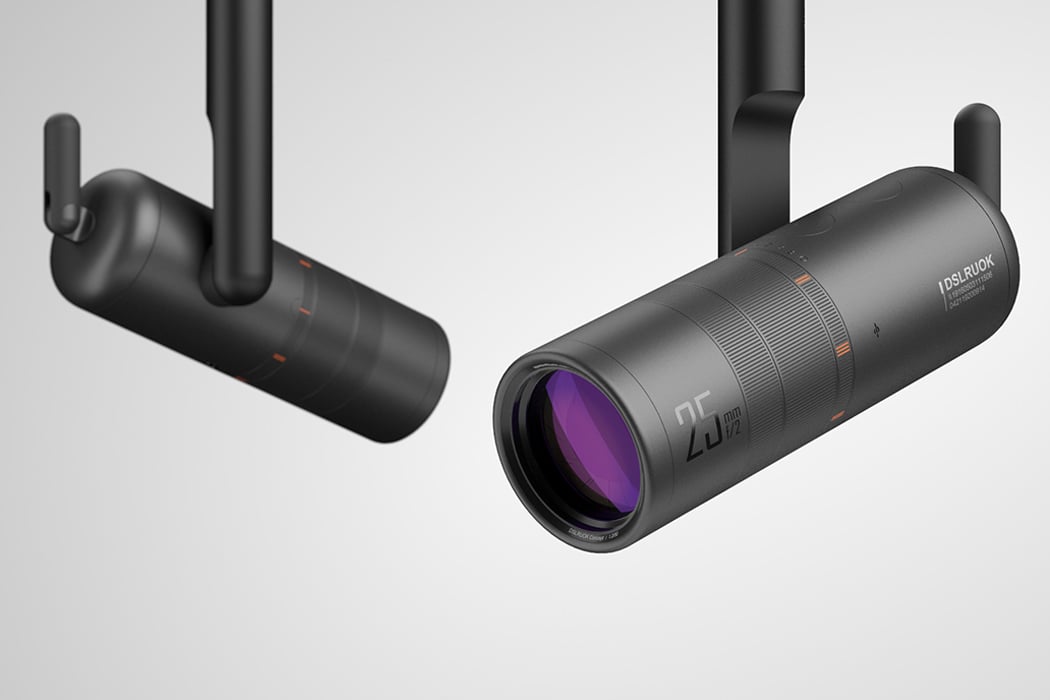
The design includes multiple strong attachment points that allow it to be attached to drones and give confidence to experiment and create a new level of risky but amazing visuals.
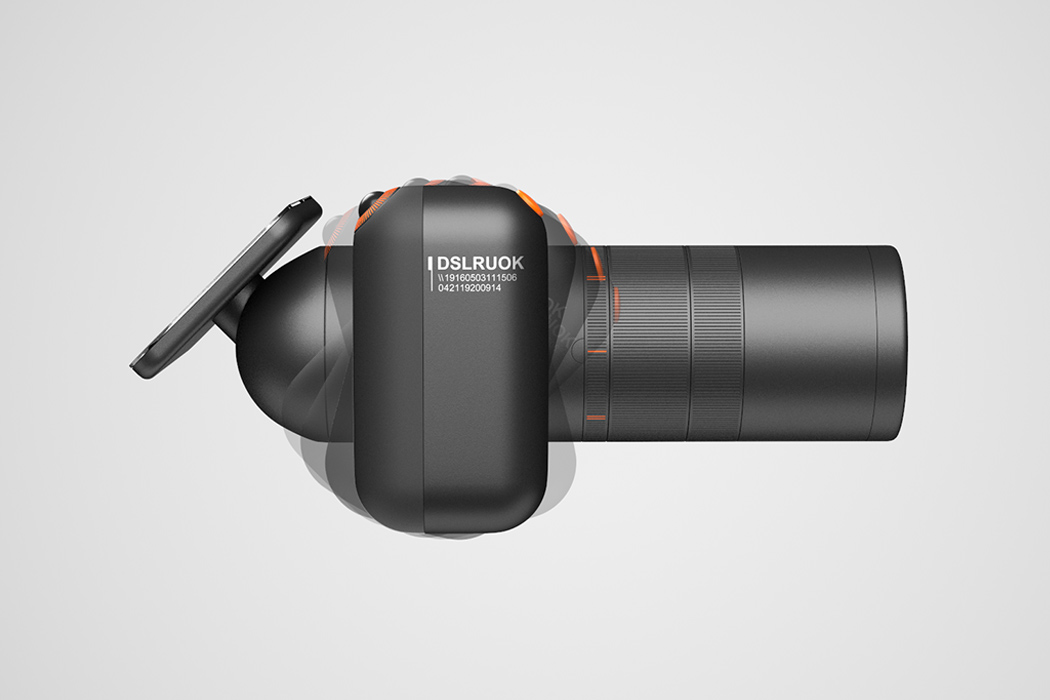
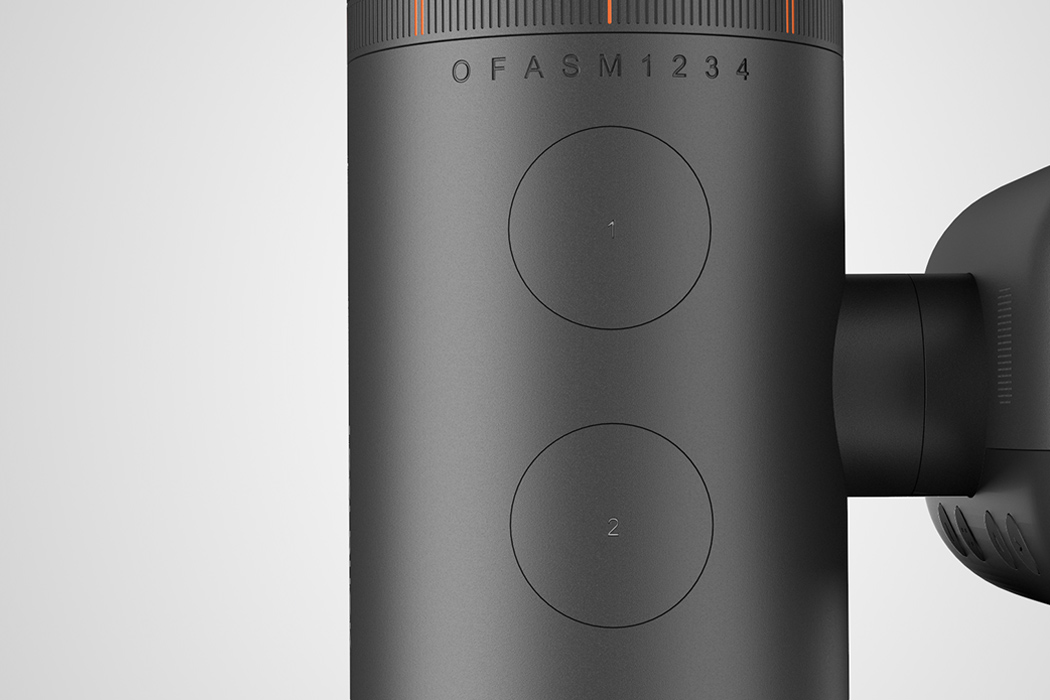
Hot shoes are great. Why is there only one on most cameras? And why are there different connector types for audio, mic, external monitors, and charging? Develop a new high-bandwidth digital interface, make it structurally strong like a hot shoe, XLR, or Apple Lightning connector, embrace it as a standard, and place multiple instances all over the body for maximum expandability and ergonomic potential.
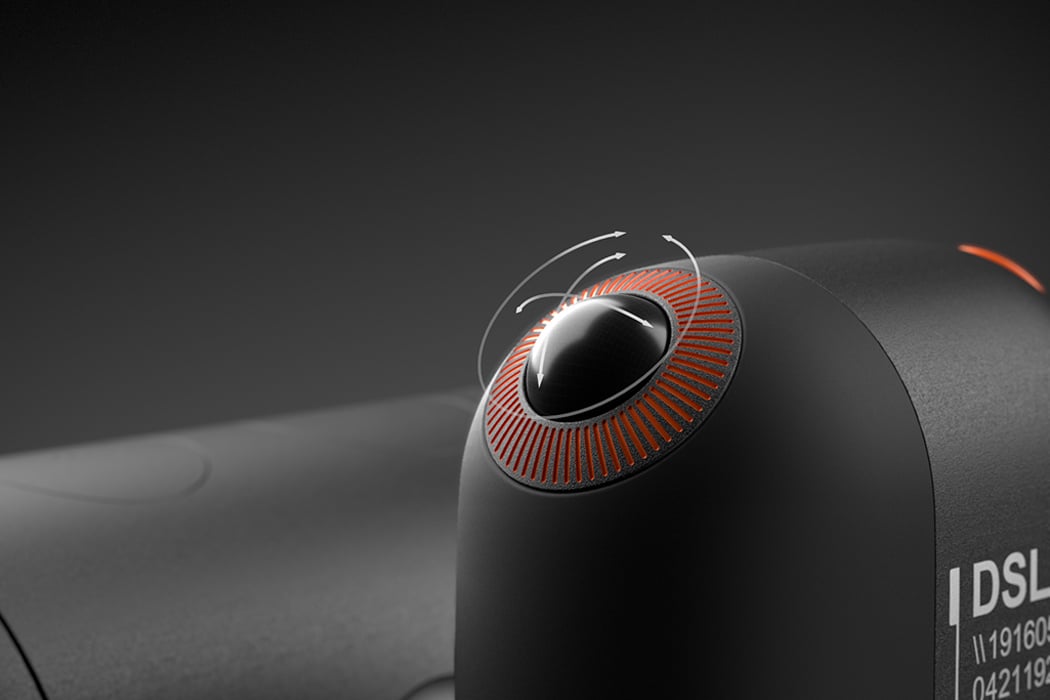
Exposure (how much light is allowed to reach the camera sensor), is the result of shutter speed, aperture size, and sensitivity (ISO). This is often presented as a triangle when it is actually a 3-dimensional space best visualized as a cube with aperture size as the x axis, shutter speed as y, and ISO as z. This seems at odds with current camera controls, which typically require us to push individual buttons to change settings disparately, masking their relationships to each other and hiding the true nature of the trade offs between different settings. With the DSLRUOK, users are able to navigate and “fly” within the exposure cube with one control, picking settings continuously and organically. A trackball allows users to navigate x (aperture) and y (shutter speed), surrounded by a jog dial that moves exposure in z (ISO).
